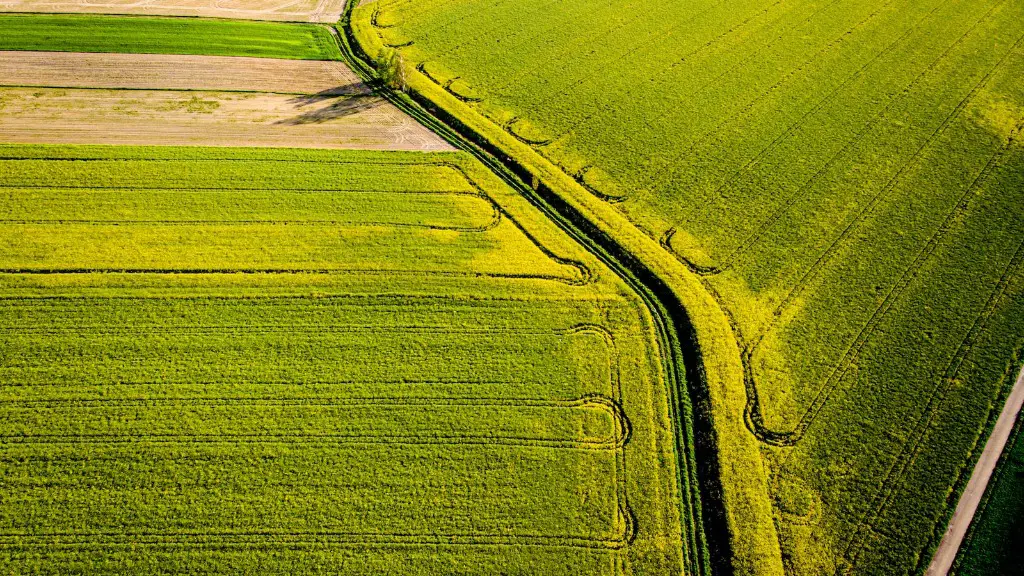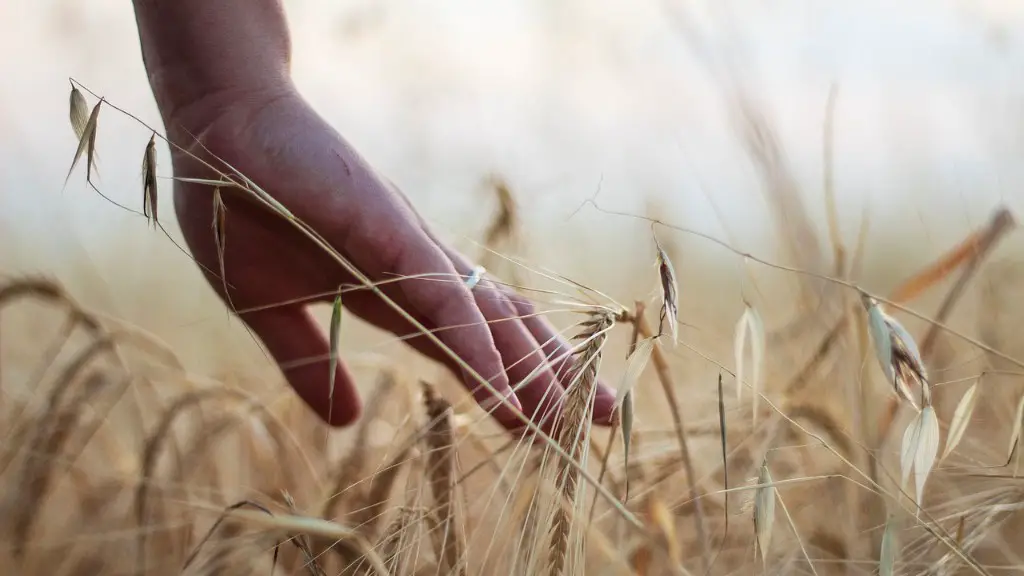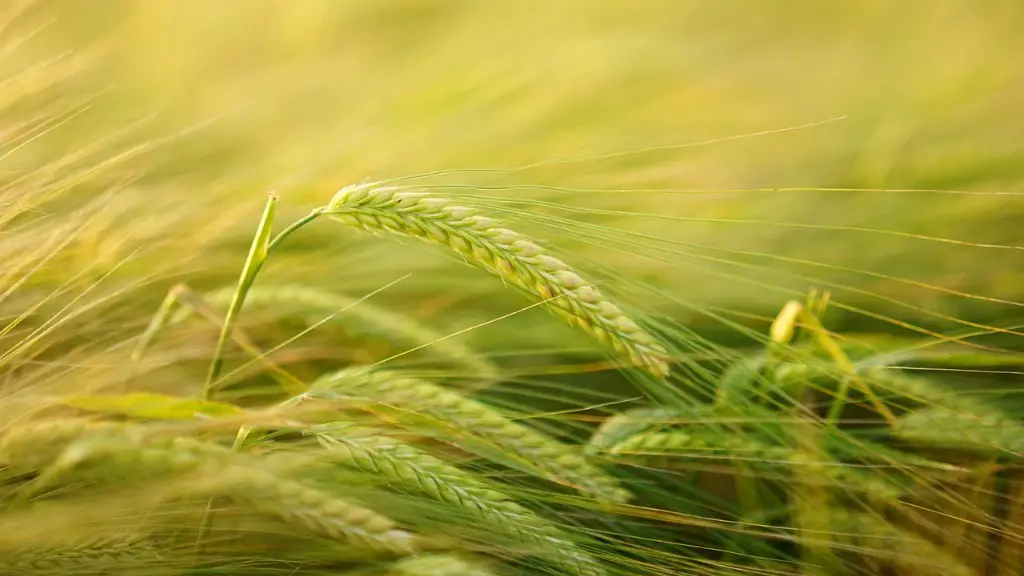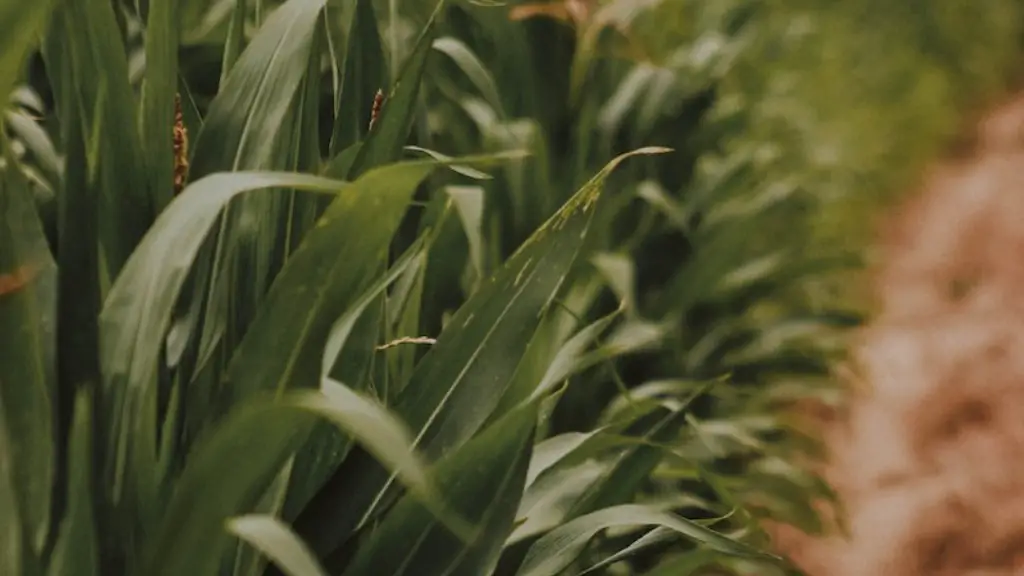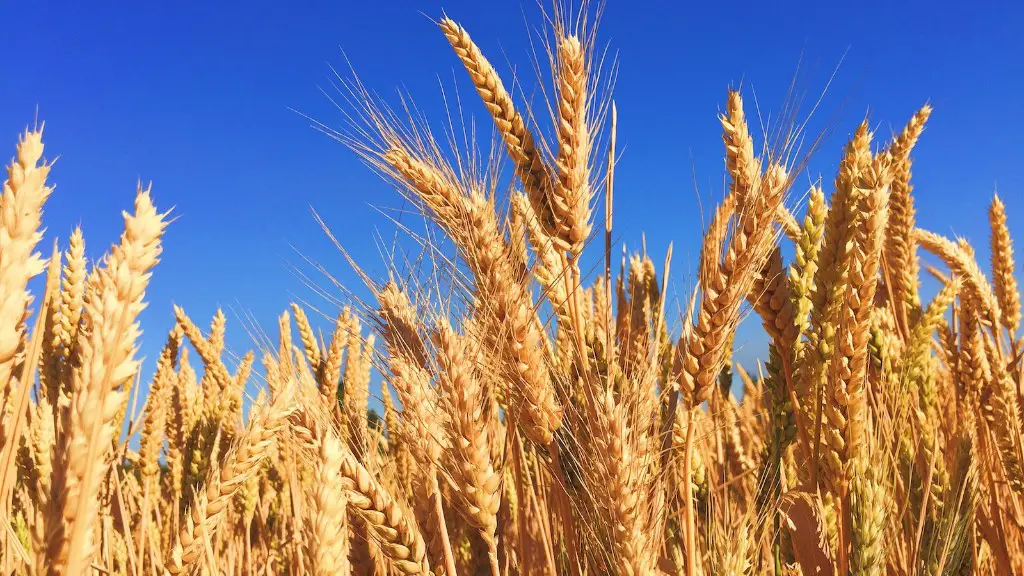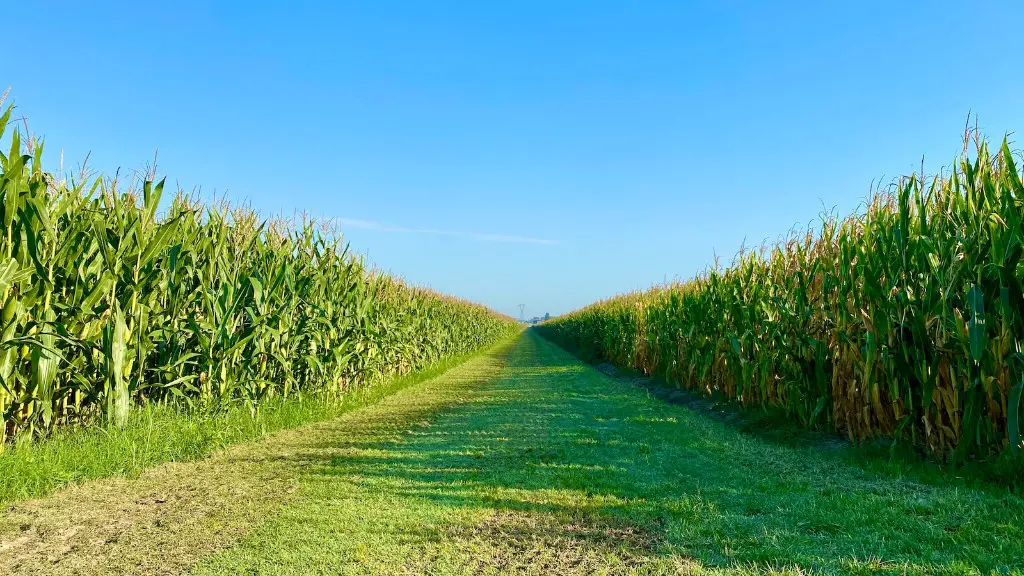It is estimated that agriculture accounts for 70% of the world’s freshwater withdrawals. Growing crops and livestock requires a lot of water, and with the world’s population projected to reach 9.7 billion by 2050, the demand for water in agriculture is only going to increase. But there are things we can do to help conserve water in agriculture and avoid a future global water crisis.
One way to conserve water in agriculture is by improving irrigation efficiency. In many parts of the world, irrigation systems are outdated and water-intensive. By investing in newer, more efficient irrigation systems, we can reduce the amount of water needed to grow crops.
Another way to conserve water in agriculture is by using cover crops. Cover crops are plants that are grown between cash crops (the crops that are grown to be sold). They help to protect the soil from erosion and improve its fertility. They also help to conserve water by reducing evaporation and runoff.
Finally, we can also conserve water in agriculture by choosing crops that are less water-intensive. Some crops, such as rice, require a lot of water to grow. Others, such as quinoa, are much more drought-tolerant. If we grow more of these water-
Here are some ways to conserve water in agriculture:
1. Use irrigation methods that minimize evaporation and runoff, such as drip irrigation or microspray.
2. Plant drought-tolerant crops that require less water.
3. Use cover crops or mulch to reduce evaporation and help retain moisture in the soil.
4. Use rainfall catchment systems to collect and store water for later use.
5. Minimize tillage to reduce the amount of water lost to evaporation.
6. Irrigate during the cooler hours of the day to minimize evaporation.
7. Use drought-tolerant landscaping that requires less water.
What are the 5 methods of water conservation?
Water shortages are becoming a global problem, and water conservation can help alleviate these shortages. Checking your toilet for leaks, stopping the use of your toilet as an ashtray or wastebasket, and installing water-saving shower heads or flow restrictors are all great ways to conserve water.
Water is a vital component of farming and natural ecosystems. Inefficiently managing the moisture in soil can lead to poor crop yields and increased runoff. In cropland, poor yields could be attributed to an insufficiency of soil moisture instead of inadequate rainfall.
How can we conserve water in the field
Water is one of the most important natural resources for agriculture. However, due to the increasing demand for water and the effects of climate change, water is becoming a scarce resource in many parts of the world. As a result, it is important for farmers to adopt practices that will help conserve water.
One way to conserve water in agriculture is to go organic. Organic farming practices can help reduce the amount of water needed for irrigation by 30% or more. Furthermore, organic farming can help improve the quality of the soil, which can reduce the amount of water lost to evaporation.
Another way to conserve water in agriculture is to install more efficient irrigation systems. Drip irrigation, for example, can reduce water usage by up to 60%. Furthermore, choosing more drought-tolerant crops can help reduce the amount of water needed for agriculture.
Another way to conserve water is to store rain water. Rainwater can be collected and stored in tanks or ponds for use during dry periods. This can help reduce the strain on local water resources.
Finally, it is important to follow best practices for soil quality. Healthy soils can help reduce water loss due to evaporation and can also help hold more water. This can help reduce the need for
Farmers can help reduce NPS pollution from irrigation by improving water use efficiency. They can measure actual crop needs and apply only the amount of water required. Farmers may also choose to convert irrigation systems to higher efficiency equipment. These practices can help reduce the amount of water and chemicals that are applied to crops, and help keep them from running off into nearby waterways.
What are 10 ways water can be conserved?
1. Use the shower instead of taking baths – this can save up to 50 gallons of water per day.
2. When brushing your teeth, close the tap – this can save up to 4 gallons of water per day.
3. Use a watering can to water your plants instead of using a hose – this can save up to 100 gallons of water per day.
4. Use a bucket to clean your floors instead of using a hose – this can save up to 20 gallons of water per day.
5. When soaping in the shower, close the shower tap – this can save up to 2 gallons of water per day.
6. Use the washing machine fully loaded, not half full – this can save up to 30 gallons of water per day.
7. Don’t let the water run when you’re not using it – this can save up to 10 gallons of water per day.
8. Fix any leaks in your home – this can save up to 20 gallons of water per day.
9. Insulate your pipes to prevent heat loss – this can save up to 4 gallons of water per day.
10. Use recycled water for your plants – this can save up to 50 gallons of water per
Water is a precious resource, so it’s important to conserve it whenever possible. One way to do this is to make sure you’re not letting the water run unnecessarily. This means turning it off while you’re shaving or brushing your teeth, and taking shorter showers instead of baths. If you do need to use a bathtub, make sure to close the drain before turning on the water, and only fill it up half way. By following these simple tips, you can help make a difference in conserving water.
How do farmers solve water problems?
Underground irrigation is a great way to save water. By using drip irrigation, farmers can reduce water usage by up to 60%. This method of irrigation is also great for preventing evaporation, which can help conserve water.
We need to do our part to protect our waterways from pollution and degradation. One way we can do this is by planting native trees and shrubs, and keeping livestock away from water’s edges. We should also leave grass or native buffers between tilled fields and streams. This will help to filter out pollutants and keep soil from washing into our waterways. We can also help by leaving stubble on tilled fields through the winter, and by covering manure piles. By taking these measures, we can help to keep our waterways clean and healthy.
How can we conserve and protect water resources
Protecting our drinking water sources is important for the health of our community. There are a few easy things we can all do to help protect these vital resources:
Properly disposing of hazardous products and materials helps to keep them out of our waterways.
Putting up signs to educate others about the importance of protecting our water sources can help to raise awareness.
Volunteering in our community to help clean up local waterways is a great way to make a difference.
Preparing a presentation about our watershed for a school or civic organization is a great way to educate others about the importance of protecting our drinking water sources.
Here are some tips for saving water:
– Take a minute off your shower.
– Brush your teeth with the tap off.
– Go easy with the hose.
– Fix any leaks.
– Scrape plates instead of rinsing them, before putting them in the dishwasher.
– Place a plug or container in the sink when preparing vegetables, washing fruit or washing dishes.
What are three reasons conserve water?
Water is one of the most important natural resources that we have and it is important that we conserve it for future generations. There are many reasons why water conservation is necessary, including the following:
Rainwater is a boon to us: Rainwater is a major source of water for many countries and it is important that we conserve it.
Water pollution prevention measures should be implemented: Water pollution is a major problem in many parts of the world and it is important that we take measures to prevent it.
Produces increased energy savings and efficient use of water reserves: By conserving water, we can save energy and make more efficient use of our water reserves.
Water is essential for life, but it’s also a limited resource. Every drop that we save helps to keep our rivers, bays, and estuaries healthy.
There are many easy ways to save water. Some of the most simple include:
– Fixing leaks: A dripping faucet can waste up to 30 gallons of water per day. A single leaky toilet can waste 200 gallons of water per day.
– Watering your lawn: Use a sprinkler like the Oasis® Smart Lawn Sprinkler Controller to water your lawn only when it needs it. This can save you up to 50% on your outdoor water usage.
– Washing your car: Use a hose with a shut-off nozzle to wash your car. This can save up to 300 gallons of water per month.
Why do we conserve water short answer
We should all be conscious of the water we use on a daily basis. It’s important to remember that even though water is a renewable resource, it’s still a limited one. The population is increasing day by day at an enormous amount and water sources are decreasing. To prevent the scarcity of water we should conserve more and more water and prevent it for the next generations as well.
There are many ways to conserve water. Some include:
– Only water your plants when they need it. Don’t water them just because it’s been a few days since you last did.
– Don’t let the water run while you’re brushing your teeth or washing your hands.
– Fix any leaks in your home as soon as possible.
– Take shorter showers.
– Only run your dishwasher and washing machine when they’re full.
Water is one of the most important natural resources that we have and it is important that we conserve it to protect our environment and our water supply. Conserving water means using it wisely and being responsible with how we use it. We rely on water for our livelihoods, so it is crucial that we learn how to keep our limited supply of water clean and free from pollution. By conserving water, we can help to preserve this precious resource for future generations.
Why should we conserve water write two most important reasons?
The demand for water is increasing day by day with a rise in population, but unfortunately, the amount of water available for use is very limited. The level of groundwater is decreasing drastically, which would lead to extreme water scarcity in the near future. In order to tackle this problem, we need to find ways to conserve water and use it more efficiently.
Water conservation is necessary to keep water pure and clean while also protecting the environment. Conserving water entails being responsible for our water supply and using it wisely. We must learn how to keep our limited supply of water pure and free of pollution because everyone depends on it for survival.
Warp Up
There are many ways to conserve water in agriculture. One way is to use irrigation systems that are more efficient. Another way is to use mulch to help reduce evaporation from the soil.
There are many ways to conserve water in agriculture. One way is to use irrigation methods that are more efficient. Another way is to use cover crops and organic matter to improve water infiltration and retention in the soil.
